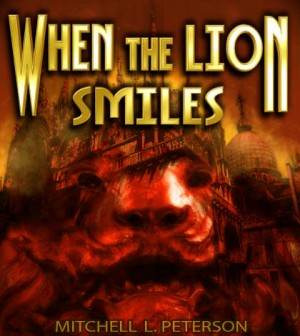Martin had confided in Elizabeth in the early years but their marital relationship had degraded to the point where he no longer did so, and as a matter of fact, went out of his way to exclude her from his trust. He told Art, his AA sponsor, everything, every detail, but Elizabeth knew nothing of him anymore. It was a crime and he knew it.
“And number four?”
“Number four is simple: always take the long way home.”
“I’m not sure I understand what you mean.” Martin said.
“Life is bother enough, lad, without having to hurry through everything. People are fond of saying these days, that lives are faster, times are harder. But it’s not that, really. It’s all a frame of mind. As I said, in the early years, building my practice I could have easily been in the kind of hurry that everyone seems to be in today, forgetting all the important things of life and living. Oh, I know you’re young, and you think the important things surround your work, your career, providing a life and living for your family. Don’t get me wrong, those are necessary and important, yes, but they don’t last; they’re not real. It’s the little things in life that are most important and you can only enjoy them if you take the time, if you go around the long way. I believe you Americans have a saying. ‘Take time to smell the flowers.’”
That was something Martin hadn’t done for a very long time, if ever. If there was a beautiful side to life that could only be found by taking the long way home, the long way around, then he had missed it. Was there anything to life besides work and home? He didn’t know. He thought of the drive between his front door and the parking lot at Crystal Springs Water. Was there anything in between except the road? He tried to think of what the street where his house sat looked like. All he could picture in his mind were trees.
It was true. He had plodded to and from work and through his life these past years like a ruddy old milk horse with blinkers and he couldn’t even remember what anything else except the road, the office and his house looked like anymore. How much of his life was gone? How much was wasted? Was work really all that important? Yes, like everyone else he needed money to pay bills, provide food, clothing, and sustenance, but beyond that, wasn’t there another kind of living? Ian said there was and all you had to do was look at his face to know that he had lived it. All you had to do was look at Martin’s face to know that he had missed all of it.
He watched as the shuttered villas and farmhouses tumbled past the window, shrouded in a light fog. It all looked so lonely and forlorn. Now that he realized, was it too late? It was for him and Elizabeth, but did he still have time to enjoy what was left of his life? He wasn’t too old. He still had a good thirty, maybe even forty years. Maybe he could live to be as old as Ian. Even at eighty-three, Ian did not strike him as being elderly or ancient. He seemed to have a young, youthful air about him. Was that due to the wonderful fifty years that he had spent with his wife? Perhaps, maybe, probably…
Ian’s youthful air was due to the fact that he always enjoyed his life rather than simply live it, that he’d tried to experience his life rather than simply have it run by him at a pace so fast that it wouldn’t be seen.
“It’s not what a man does for a living, lad; it’s what he’s living to do!” Ian said and he was a man who quite obviously consumed life; ate it up like a starving beggar at a feast rather than have it consume him.
Martin wondered if he could do that. He wanted to. He knew there must be more to living than what he had experienced. He knew that there must be something more to life than dreading each day as it came; more to it than simply being glad when it was over at the end of the day.
Ian tapped the bowl of his pipe out into the ashtray, and then looked to Martin before he spoke.
“Anyway,” he continued. “That’s the way we chose to live our lives and whether it was right or not, it worked for us and only because my dear wife was an angel, as I have said, that and because I adored her with all my heart. It’s not the rules that govern your life that make the difference so much as the spirit of them. We kept the ‘spirit of the law’, so to speak and held it more valuable than the actual rules we set down. We cherished each other and that adoration allowed for the imperfections we were both guilty of every day, although I must say, if God ever created a perfect woman, he did so in my Eunice! She was near to perfect as any woman could ever have come and bless her, she tolerated me as only a woman of such pulchritude could when living with a proverbial frog! God knows things haven’t been the same since she passed but I haven’t been lost without her or at least as befuddled as I should have been. For fifty years I was the most fortunate of men and I owe a debt to God for that. I’ve continued to live in the same fashion that we did together and every year at this time I still go to our vacation home in Maniago. It helps me to keep a part of her by doing the same things that we did together while she was alive. If I live to be hundred,” he chuckled, “then that means I have less than 20 years left, and I want to enjoy them, I want to enjoy them all. Twenty years can be a long time if you hate every moment of it, but if you’re enjoying yourself, if you’re having fun, it slips away all too quickly. Ironic isn’t it?” He smiled.
The engineer sounded the whistle and the train began to slow. Ian looked out the window and saw that they were pulling into a station. He looked back to Martin and said,
“Young man, this is your stop and mine, San Lucia Station. It’s where I change trains for Maniago and where your life begins. Enjoy yourself, lad. This is one of the few places on the face of the earth where time stands still.”
“I don’t understand.” Martin said.
Ian stood and gathered his things and smiled at Martin as he spoke.
“You will, lad. Soon enough you will.”
Neither man would understand the ultimate significance of Ian’s last statement but soon enough, Martin would become intimately acquainted with how time passed when one was not enjoying himself!
The air was filled with an awful screeching as the engineer applied the brakes and the train rapidly slowed to a stop. Martin grabbed his suitcase as Ian opened the cabin door and stepped into the hallway. Martin followed him, and they stood together waiting for the train to come to a complete stop. Ian looked at Martin and before they parted company, said,
“Cherish your first view of Venice, lad. It will be something that will last you for a lifetime.” His eyes twinkled as he smoothed his mustache.
The train came to a lurching stop and both men walked toward the door at the end of the car. Martin stepped off the train onto the covered walkway. The cool, brisk air flushed his face and he began walking toward the station entrance. His fellow travelers filled the walkway and it was just a few moments that he turned to see that Ian had disappeared.
“What a remarkable man. I wonder how Bill arranged that?” He thought to himself.
At the end of the walkway sat the station house, a long low squat building with glass doors that ran the length of the backside into the main foyer. Martin stepped through the glass doors and into the hustling throng of people that filled the station. To his left, behind a glass partition, was a restaurant filled with people either arriving or departing the station, meeting loved one’s, family members; vacationers having their first meal in Venice. To the right along the far wall was the ticket counter. There weren’t many people buying tickets for departure. Directly in front of him lay the doors and exit into Venice.
As he stepped through and the brisk cool air hit him again, his eyes were, for the first time assaulted with the beauty that was Venice. Looming up in front of him like a ghost from the movies, across a canal filled with green seawater, a church with an oxidized verdant cupola sat regally on white marble as the swells licked and lapped at her ancient foundations. The street before him seemed to be alive with people purposefully walking back and forth to the boat stop to the far right. The canal was bustling with traffic. Vaporetti, gondolas and boats of every size and description filled the water. The air was permeated with the screeching of trains, boat engines, languages from every corner of the earth and the smell of rain that would surely come. He stepped onto the flat cobbles of street and looked down at his feet. Was it true? Was he really here? He chuckled to himself… “Am I here? ‘I think, therefore I am.’” He turned and looked back at the art deco building that housed the station and saw the front stairs filling with people. He stood dumbstruck by the sight of a place he never dreamed could exist, a city that simply and quite magically rose up from the sea. All around him stood a city that had survived the centuries of man’s destructive nature and yet with a grace and beauty that defied description.
His travel agent had told him to take the number one boat down the Grand Canal and exit at the Santa Maria Del Giglio boat stop, from there he would walk down the alley and angle left to find his hotel, the Bel Sito. Martin took a last look around before starting for the boat stop. It was Thursday; approximately 3:30 in the afternoon, and his life was forever changed. He didn’t know exactly why, and something about it made him feel melancholy.
The trip down the canal was slow and arduous, but Martin didn’t mind. He had purchased his ticket with little trouble for he still had the lira in change that he had received in Milan, had stamped it in the machine and simply got on. It occurred to him that it was probably unnecessary for no one was checking tickets. The Vaporetto zigzagged through the canal, stopping at nearly every stop all the way down. Martin sat at a window seat and watched the people get on and off, most of them riding in silence, a few of them chatting in Italian. Mostly he just watched the city as it paraded before him beyond his window. It was so beautiful! It was ancient, magnificently built. The buildings seemed to rise from the sea without benefit of any foundation whatsoever, as if they just floated there, magically and precariously suspended. Gargoyle like faces glared out at him from every corner of the blacked marble and the buildings themselves seemed to heave up and down with the sea, living breathing monoliths slowly drowning in the canal. He could see how the buildings were giving way, succumbing to the centuries. Stairs that once rose above the watermark were now covered with green algae, and it looked as if most of the first floors were probably now underwater. Along the way, he tried to look into the windows of the buildings that they passed. From some, matronly women shook tablecloths out the windows, scattering the crumbs and remnants of meals to the sea birds that filled the watery canyon between the buildings that stood on either side of the Grand Canal. Clotheslines hung from the windows and all along the way, people were crowded into every niche and crevice that was offered up by the stone.
As they traversed the canal, they passed boats going in the other direction. On more than one occasion, the Vaporetto slowed to almost a full stop as gondolas crossed from one side of the canal to the other. He watched as gondoliers arduously rowed the flat bottom skiffs with people standing in the center. He was not a yachtsman, had never spent much time on the sea or in boats, but he knew the cardinal rule was not to stand. And yet, as the small shallow draft vessels crossed in front of them, he could clearly see that the seven or eight people it contained were standing. He laughed silently to himself. Did they ever fall in?
As they rounded a corner, he saw a group of five or six Venetian gondolas with the gondoliers and their straw hats; their navy tops and dark pants rowing what he assumed to be boatloads of tourists. To the front of the pack in one of the gondolas sat an accordionist singing Santa Lucia. He had a large, booming melodic voice. It was a scene reminiscent from movies he’s seen as a child, how beautiful, how wonderful! All around him life writhed in the sea, rose up from it, defied it and reveled in it all at the same time. It was a fantasy world, a fairy tale and yet here it was, real, it existed; not a Hollywood movie set, but unfeigned. Did people really live here? It astounded him.
As the boat came to each stop, Martin watched as the young man operating the gate threw a rope over the dock stanchions, looped it off, folded it under and tied it in a knot using the boat’s own forward progress and idling engines to secure it. The large hemp ropes strained, groaned and popped ominously as the pilot gunned the motors and deftly steered the boat into the dock. As the people got on and off he noted the name of each stop by the yellow sign, and finally he read Santa Maria Del Giglio. It was time to get off.
He exited the boat along with several other people and began to walk down a small street sandwiched between two towering buildings. He listened as he walked along in the menacing shadows to the hollow echo of his footsteps as they struck the cobblestones. The alleyway spilled into a small square. To the right sat a row of buildings that divided the square into a crisscrossing intersection. To his immediate left was the blackened edifice of a massive church and just across from that a smaller building with a glass door and a small patio front. The sign above the patio read Bel Sito. It was just after four in the afternoon.
~
When the Lion Smiles © 2011 by Mitchell L. Peterson.
All rights reserved. No part of this book may be reproduced. Stored in a retrieval system or transmitted in any form or by any means without the prior written permission of the publishers, except by a reviewer who may quote brief passages in a review to be printed in a newspaper, magazine or journal.
First printing.
This is a work of fiction. Names Characters, places, and incidents either are the product of the author’s imagination or are used fictitiously. Any resemblence to actual persons, living or dead, event, or locales is entirely coincidental.
PublishAmerica has allowed this work to remain exactly as the author intended. Verbatim, without editorial input.
Available in Paperback, Kindle & Nook editions, and in Hardcover from, PublishAmerica, Amazon & Banes and Noble.
PUBLISHED BY PUBLISHAMERIC, LLLP
Balitmore


















